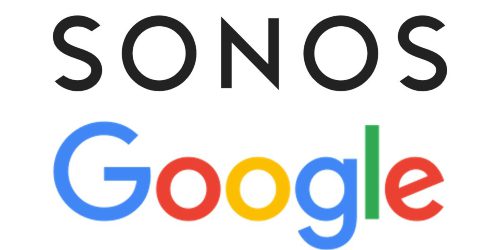A federal judge has thrown out the $32.5 million verdict for Sonos (Nasdaq: SONO) against Google (Nasdaq: GOOG), ruling that the Sonos patents it claimed Google infringed upon were unenforceable.
In a ruling filed in the U.S. District Court for the Northern District of California, U.S. District Judge William Alsup says Sonos essentially misused the patent system and only filed the applications for the patents on multi-room audio systems and presented the claims in 2019, 13 years after the company filed the provisional application.
Alsup’s ruling reverses a federal jury’s decision from May which ruled in favor of Sonos, forcing Google to pay $32.5 million for using patented smart-speaker technologies without Sonos’ consent and itself came after several of Sonos’ initial claims had already been set aside, having been deemed invalid previously.
Sonos and Google explored a collaboration for multi-room audio systems in 2014, but it never materialized. During this exploration of a partnership, Google shared plans with Sonos for a product that Alsup writes would eventually practice what would become the “claimed invention.”
Google moved on and began introducing its own products with the alleged infringing technology, but Sonos waited until 2019 to pursue claims on the invention and waited until 2020 to roll out the invention on its own product line.
Alsup writes that Sonos’ provisional application didn’t even disclose the specific invention the company alleged is being infringed. However, the company amended its 2019 patent application to include specific language, incorrectly connecting it to that 2006 provisional application.
Because Sonos’s applications for the patents in suit ostensibly came from the 2006 provisional application, Alsup writes, Sonos claimed a priority date before Google’s disclosures and product releases. Then, Google’s own products fell “under a cloud of infringement.”
“Trial brought to light what happened here,” Alsup writes. “This was not a case of an inventor leading the industry to something new. This was a case of the industry leading with something new and, only then, an inventor coming out of the woodwork to say that he had come up with the idea first — wringing fresh claims to read on a competitor’s products from an ancient application.”
Alsup further tears into Sonos, writing that the company was wrong to use the patent system in this way, including when the company amended the 2019 applications to incorporate new specific language and narrowed claim language.
“With its constitutional underpinnings, this system is intended to promote and protect innovation. Here, by contrast, it was used to punish an innovator and to enrich a pretender by delay and sleight of hand,” Alsup writes. “It has taken a full trial to learn this sad fact, but, at long last, a measure of justice is done.”
Sonos could not immediately be reached for comment.
Google to Roll Back Removal of Software Features from Start of Lawsuit
This week, Google posted an update in its Google Nest Community blog, saying it reversed a change it made where certain devices can only belong to one speaker group at a time in the Google Home app. The company cited the recent decision. The company is now rolling back the change, allowing devices to belong to multiple speaker groups.
In a separate blog, Google General Counsel Halimah DeLaine Prado says Sonos has been “running a years-long, misleading campaign” against features in the Google home devices and smart speaker devices.
“The decision shows the weakness of a central plank of Sonos’ campaign,” Prado says. “The court stated that Sonos’ patents are both invalid — meaning they never should have been granted in the first place — and unenforceable, and affirmed that we developed the technology first and independently.”
The legal battle began in 2020 when Sonos sued Google, alleging the company had illegally incorporated elements of Sonos’ own products into Google’s speakers. It has also resulted in a broader legal war between the two firms, with lawsuits being filed across multiple countries and complaints with the U.S. International Trade Commission.







